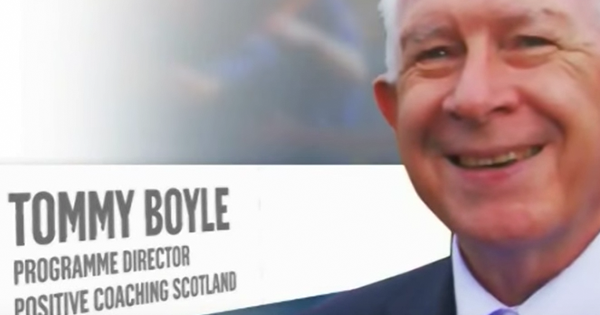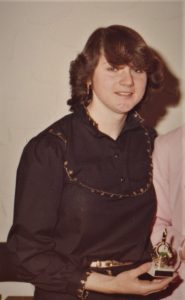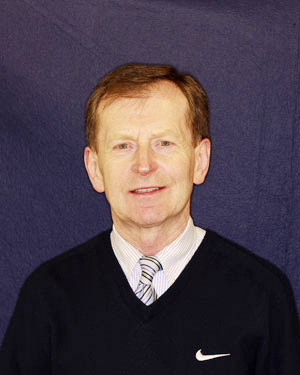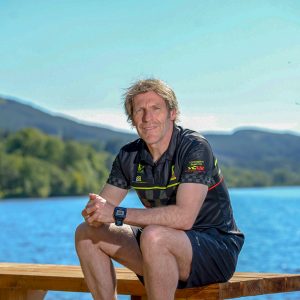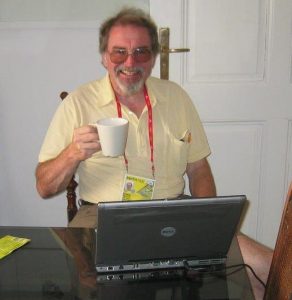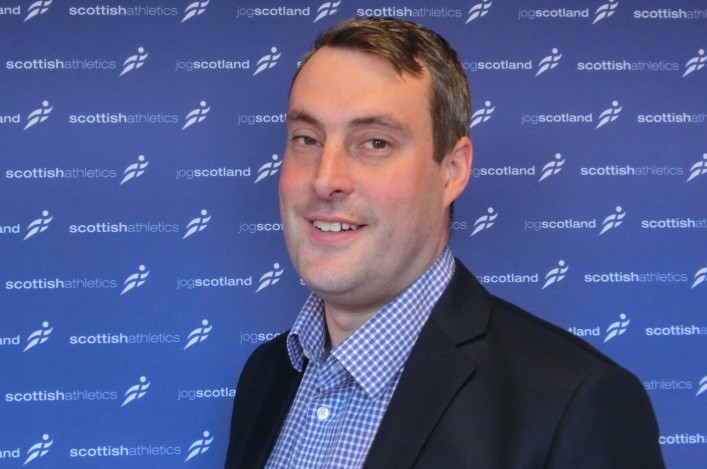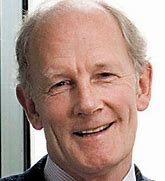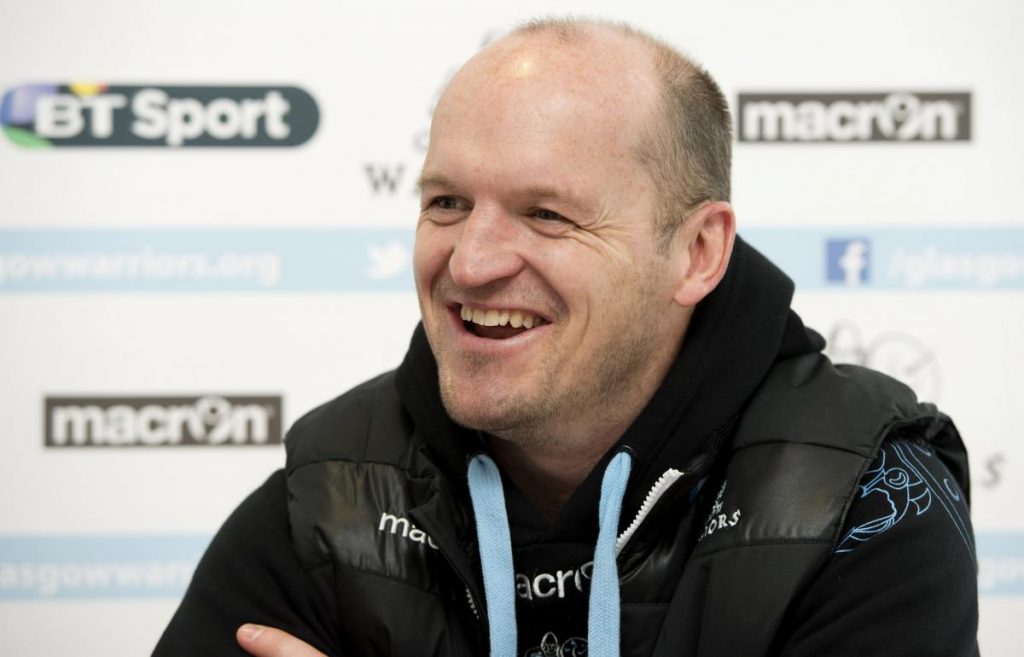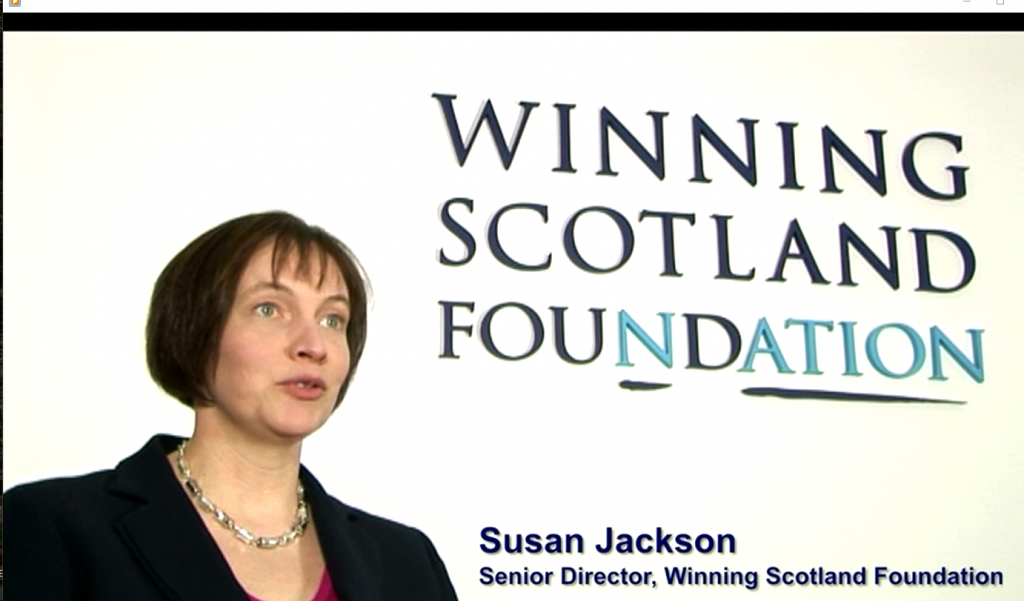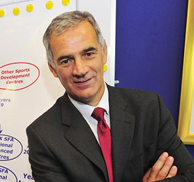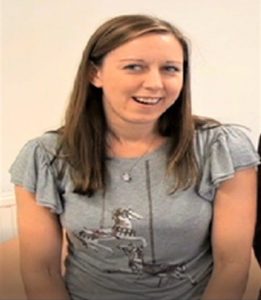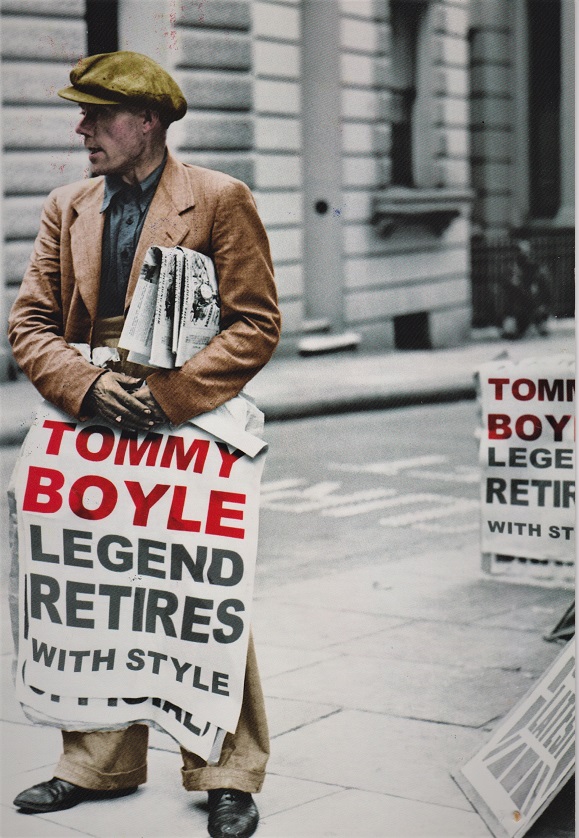One measure of how good a coach is, regardless of the success of the athletes coached, is what their peers and rivals think of them; how they stack up in the eyes of critical contemporaries. We asked some coaches, athletics aficionados and others who knew/know him what they think.
Anne Howie
First up is one of the athletes that he worked with back in the beginning in Bellshill, Anne Howie, and she encapsulates in her comments all that Tommy Boyle is about. She says:
I met Tommy when I was around 14 or 15 when I changed running clubs and joined Clyde Valley AAC in the mid 70s. I joined along with a few others who had jumped ship and we all became part of a mixed ability endurance training group, males and females, which included athletes who were already members of the club – an amalgamation of several other athletics clubs in the area, including Bellshill, Motherwell, Airdrie and Coatbridge.
Our section of the club was based at Bellshill YMCA. Our club nights were Tuesdays and Thursdays. During autumn and winter we trained around the streets of Bellshill and on the playing fields of Bellshill Academy. We also had sessions inside the school – circuit training in the gym hall as well as intervals in the long school corridors – they were hard! Longer interval sessions took place at Strathclyde Park, mainly on non-race weekends and most of the group would meet up on Sundays at some pre-arranged location for a long run, which was mainly at a sociable pace so we all could chat and have a bit of a laugh. Another facility we used was the Police Hut in Bellshill where we did strength work using weights – it was no fancy gym like the ones around today but it was a great resource for the club. From spring through the summer track season we relocated to the track at Coatbridge on Tuesday and Thursday evenings and also some weekends.
Tommy planned and led most of the group’s training but we would also do some sessions with other coaches leading; I recall sessions where we did running form drills under the guidance of a sprints/hurdles coach – diagonals across the school’s cinder pitches. Whilst we mostly trained as a group, somehow Tommy always managed to individualise our training plans so we were working towards our own specific performance goals. Our training paces, the number of interval reps we did etc., were all geared to help each of us achieve what we had identified as our targets for the season. It never felt like one athlete was being favoured over another, at least I never felt like this, as Tommy put just as much effort into coaching the back of the pack runners as he did those at the front.
Looking back, I think Tommy, in many respects, was ahead of his time as a coach. His structured and methodical approach to training his athletes was based on the wealth of knowledge and understanding that he was continuously accruing and applying. He was on a constant learning journey and he liked to learn from the best – he went on lots of coaching courses and had good relationships with coaches at all levels including the national coach at the time, Frank Dick.
He used methods and approaches that I read about athletes incorporating into their training today as if this is new. Tommy was applying these techniques to our training way back then – over 40 years ago. An example of this is speed ball training. Whilst mainly part of the training for sprinters, Tommy also built it in to the training plans of his endurance athletes too. Nowadays, training based on heart rate zones is commonplace using heart rate monitors built into sports watches etc. Tommy was applying this well before this technology was available using a stop watch and getting us all to manually take our pulse rates. As indicated above, we also did strength and conditioning training with weights, which many current professional athletes claim to have only recently added to their training programmes and are extolling the benefits of. I’m sure we also did high intensity interval training (HIIT) sessions which have become a ‘new’ phenomenon in the field of fitness training.
Tommy also encouraged us to keep training diaries to log the different aspects of our training – endurance/strength/speed endurance/speed etc. – to build an overall picture of our training load, identify imbalances, weaknesses, performance progression or regression and used this information to change or adapt our training as required. I did this with coloured pencils, now you just upload your Garmin data to a spreadsheet on your computer or other device.
Tommy coached a number of athletes to international success, including Tom McKean, who was in our endurance group and Yvonne Murray who came under Tommy’s guidance at a later date – Tommy’s accomplishments as a coach had clearly prompted Yvonne’s move from her previous advisor. He also coached a number of sprinters who achieved national titles and represented Scotland at various levels.
Helping young people reach their potential on the track was obviously a driving force for Tommy, however, it wasn’t just about winning medals and gaining national titles; Tommy was equally, if not more, interested in helping his athletes to succeed off the track – he was a life coach as much as he was an athletics coach.
Most of the young athletes Tommy coached, me included, were from low income/socially disadvantaged backgrounds and destined to remain in that demographic into their adulthood, all things being equal. Tommy had other ideas; he wanted more for his athletes, he wanted them to, clichéd as it is, be the best they could be personally, socially, emotionally and academically. At the very least, he wanted to broaden their horizons as to what life had to offer, how they could do and achieve more and move beyond their current circumstances through hard work and application, developing resilience and holding themselves to a higher standard. He didn’t preach, he gave sage advice and, as far as possible, provided emotional and practical support.
I always recall Tommy saying that most people in our group would marry someone in the same social bracket, who lived within a few miles of each other and would settle down in the same area where they grew up. Nothing wrong with that if the two people are happy but what he was saying was ‘go out and explore the world, meet other people who have different experiences, expose yourself to other experiences and then decide who with, what and where you want to settle down, if that’s what you want to do’.
Tommy also emphasised to his athletes the importance of their education and was clear that it should be prioritised over athletics even though he also believed that participation in sport provided young people with many opportunities to develop skills as well as personal qualities and traits that would benefit them as adults in terms of both future employment, health and well-being and life in general.
There were individuals in our group who could easily have found themselves on the wrong side of the law but Tommy found ways to keep them on a more positive path, steering them away from health damaging and anti-social pastimes/activities and getting in with the ‘wrong’ crowd. He took an interest in them, listened to them and helped them to learn skills and develop characteristics that would give them a good chance of ‘winning in life’ long after they’d, metaphorically speaking, stepped off the track. To this day, though I have lost touch with a number of the individuals from our training group, I’ve not heard of anyone I knew back then falling into or being in a negative life situation.
Tommy’s belief that participation in athletics and sport in general, with the right kind of guidance, could help build character and equip young people with skills for life has continued beyond his time as an athletics coach through the work he undertook in the latter part of his career prior to his retirement (I believe he has finally retired!).
Although, I didn’t keep in regular contact with Tommy after graduating in the mid 80s, we remained long distance friends (I moved away from Lanarkshire permanently) and there were various occasions when we reconnected – weddings, birthdays, Christenings; however, a few years ago he got in touch with me regarding a project he was working on and brought me on board to assist in evaluating its impact – I have a background in health related research and evaluation. The project, in my opinion, sums up everything Tommy is about – a passion for helping young people achieve their potential in life through sport and creating the conditions to facilitate this i.e. enabling the adult influencers that surround young people – sports coaches, teachers etc., to develop, instil and reinforce in their charges positive character building traits that will give them the best possible chance of succeeding as adults in this challenging and complex world.
Then former Scottish national coach and British National Coach, Frank Dick, comments briefly:
“Tommy has been an outstanding ambassador for Scottish Athletics and coaching, he did a truly fantastic job with Tom McKean and Yvonne Murray.”
From Norman Poole, above, President of the British Milers Club:
Tommy Boyle is undoubtedly one of the top Scottish coaches of all time whose athletes have won numerous medals at major
indoor and outdoor Games.
I first got to know Tommy at various Games during the late 80’s and in particular during my own time as the UKA National
Middle Distance Event Coach in the 90’s. It was during this time that his two most well known proteges, Tom McKean and
Yvonne Murray, were at their peak. I always remember the calm, controlled and studious nature of Tommy at the Games no
matter the level of stress experienced within the competition arena. Tommy never appeared ruffled, always in control and this
is what he transferred to his athletes. A vital ingredient for success at World level for both athlete and coach.
I have heard Tommy speak about his training methods and coaching philosophy in the past and have had discussions during
our times at the various Games. He always struck me as a coach who planned his athletes training schedules meticulously,
investigated all areas of concern for them and was a stickler for the fine detail which he knew could make a difference to their
performance.
He also emphasised the importance of assessing the aim of each major session and designing it around the needs of each
individual. I well remember how this was exemplified when he was attempting to perfect certain areas of Tom McKeans training.
In the early stages of his development Tom was experiencing difficulty with key 800m sessions and complained that he could not
cope with the recoveries between sets. These were recoveries Tommy knew were appropriate for other 800m athletes he had
coached. To further understand why Tom had this problem Tommy invited physiologist Myra Nimmo to check Tom’s lactates during
a session. Myra found that Tom’s lactate levels were remaining high for substantially longer periods of time compared to most
other 800m athletes. By increasing Tom’s recoveries the times of his sessions improved to acceptable levels and also met the
criteria set for the aims of the sessions. Tom went on to improve his pb’s.
This is a story that I have never forgotten and always refer to it when planning the recoveries of major sessions for the varied
individuals I have coached.
Some months after Tom McKean won the 800m Gold at the 1990 European Champs in Split I had the pleasure of listening to
Tommy deliver a lecture at the European Coaches Conference in Finland. He was rewarded with a standing ovation on the
completion of his lecture. An ovation that continues to this day.
Gordon Crawford, above,currently National Coach in Switzerland, working with their elite and Under 23 squads, says:
“Tommy Boyle for me as a young endurance coach was an inspiration. At the time Tommy was coaching three World Class athletes whilst doing all of that in Scotland. Truly amazing. More importantly and a fact that has influenced my own approaching to coaching is Tommy’s ability to inspire and develop top class support teams around his athletes. The integrated approach to the development of world class athletes for me was ahead of it time. Tommy is a great innovator and reflector in his coaching and has a very open mind, very much a growth mind set and positive approach to coaching. Tommy has never been afraid to make tough decisions. I get on very well with Tommy and class Him not only as friend but a top class person. Tommy is very intense but has a great sense of humour but is a private person and a family man. For me Tommy is one of the great Scottish Athletics coaches and a real prescience and knowledge of athletics.”
Doug Gillon
Doug Gillon, above, formerly athletics writer and journalist with the ‘Glasgow Herald’ as well as for some other publications such as the highly regarded “Scotland’s Runner” who is a long time friend of Tom’s adds this assessment:
Tommy Boyle seemed to come to public notice for the first time when a talented young junior, Tom McKean, compiled impressive performances at 200 and 400 metres in the years following the 1980 Olympics. Of course, like all coaches who seem to have nurtured an overnight success, a lengthy unseen apprenticeship had been served, by both athlete and coach. Boyle, who had guided McKean since 1974, when he arrived at the Bellshill club aged 11, was ensuring McKean served his apprenticeship, by developing his speed. However, Boyle always knew that his real talent lay over 800m. And he was not going to do it by making the lad a slave to the miles, in the Scottish harrier tradition. He was going to develop and harness his pace.
What singled out Boyle, as his protege began to make headlines over two laps, was his attention to detail. There was no lottery in the early ’80s, and no chance of a working- class kid, a labourer laying slabs for the local council, finding the wherewithall to even approach what we w ere beginning to become a ware was available at the likes of Loughborough. Or the USA, or Soviet Union.
Boyle identified a range of deficiencies and potential service providers, then set about trying to fund them. But the medical, scientific, nutrition and coaching components only began to come together when he found an eager listener in luxury car dealer Glen Henderson. Years earlier, Henderson had identified similar deficiencies in his own sport, speed skating, and had set about bringing the best Dutch coaches to Scotland. Boyle found himself knocking on an open door, and brokered a complex sponsorship and employment package.
Two visionaries were looking through the prism of elite performance development from the same angle, yet the scale of Henderson’s willingness to invest in what Boyle perceived as essential, proved staggering.
Boyle left no stone unturned, and Henderson’s funding meant scrutiny of every potential avenue became possible. The concept of ” marginal gains ” had yet to be coined, but Boyle was laying down markers which seemed to become eerily familiar decades later, when we watched the progress of British cycling .
So Tommy was a workaholic, an innovator, and an analyst, as befitted a man with a background in the science of management and quality control. I was fortunate in following and charting the career of Scotland’s most exciting talents that Boyle was prepared to share his vision and his methods. Unlike many coaches, we were welcomed – even encouraged to come to training sessions, including over Christmas.
And when science and technology did not have the answer, the pragmatic Boyle invariably did. Like preparing McKean for the hurly-burly of elite two-lap racing. He set him up with a big Lanarkshire policemen, and instructed the cop – no mean athlete, with excellent pace – to lean on McKean, or box him in, to give him an appreciation of the physicality of the event.
His psychological approach was also fascinating, and when McKean’s performances reached a domestic plateau in the late 80’s, Boyle scared McKean into finally following instructions, and achieving the times his training indicated were possible. He warned McKean that if he could not run as instructed, they were finished. The outcome was a victory at Crownpoint in 1:44.79, a time which will celebrate 30 years as the Scottish native record next summer (2019). There has been only one other holder of this record since 1970!
I believe that discovering what he was capable of on his own, may have been the key which helped unlock McKean’s ability to wait in front, and repel all challenges – the tactic whereby he won European outdoor and World indoor gold.
Boyle swore afterwards that he had meant every word that day at Crownpoint in 1988. And more than once, when he considered withdrawing his protege from races for which he believed he was not properly prepared, or focused, Boyle would remind me that he saw his responsibility as looking out for McKean’s future, not as an athlete, but as a human being.
I suspect Boyle might ultimately have concluded that he never quite got the best out of McKean (either time-wise or in terms of global titles). I always felt that the Bellshill Bullet was a unique talent, possessed of reserves that not even Boyle could manage to unlock.
Not that he was rigid in his approach. When he inherited Yvonne Murray from Bill Gentleman, he quickly concluded that he lacked the tools to add a finishing kick which might cope with suspected drug-fuelled Eastern Europeans. He enlisted Stewart Hogg, a sprint coach steeped in the traditional Scottish pedestrian tradition. It proved a marriage made in heaven, with Yvonne mastering a kick which was first unveiled when she won European 3000m gold, in 1990, in Split. It was masterly team work, brilliantly planned and executed.
Nor was Boyle a one-trick pony. His energy and enthusiasm for his training group at Wishaw was boundless, and the success of numerous athletes at Bellshill YMCA, and their reverence for the coach, was testimony to his effectiveness.
The Boyle era, coinciding as it did in the rivalry between Murray and Liz McColgan, was one of unprecedented success for the sport in Scotland.
Boyle was a man ahead of his time, a n innovator and a deep thinker. He was heart-warmingly steeped in his athletes’ welfare, but did not suffer fools.
He helped fuel one of the most exciting periods in Scottish athletics history, and had his era not coincided with intense doping skullduggery in Eastern Europe, there might have been even greater triumphs. That’s part of the tragedy of doping. It haunts athletes and coaches for life. One never knows what might have been. “
Mark Munro
Mark Munro, CEO, Scottish Athletics
I first remember Tommy Boyle when I was a young athlete at a Livingston Open Graded meet, Tom (Mckean) was also there and Tommy was somewhat of a ‘legend’ having masterminded the careers of Tom and Yvonne (and latterly Susan Scott). He also had a reputation as being quite ‘fierce and intimidating’ if I remember. However, following my 800m run which was nothing special, I remember he asked me walking past, “was that a PB son, you did well, you attacked it”. Those words stayed with me for many a year.
Having left the sport as a competitor in my early 20s, I met Tommy again around 7 years later when I had started working on the Positive Coaching Scotland programme through my employment with the SFA. We struck up a very strong and effective working relationship from that point and then Tommy was instrumental in my appointment as Head of Development at Scottish Athletics some 7/8 years ago now.
Tommy has since remained a mentor to me and he’s one of our most successful coaches ever. Someone once asked me how I would describe Tommy and my response was;
Very successful, extremely detailed, straight talking, fiercely competitive, intimidating when he needs to be……….but very fair…….. and arguably the most successful coach that Scotland has produced in, and stayed in Scotland”
Sir Bill Gammell,
“Tommy Boyle is a legend. He embodies all the values that he Coaches and Teaches. Aspiration, Insiration, Determination, Perspiration, Innovation. Tommy’s passion is in helping others to become the best that they can be, and he has left a huge legacy with his work since inception at Winning Scotland Foundation. “
Gregor Townsend
Gregor Townsend, SRU,
Tommy has been of great help for me throughout my coaching, both as a source of valuable advice and as someone who has supported me when times have been tough. I feel very grateful to have met Tommy and spend a few years working alongside him for Winning Scotland Foundation. The timing of this was very fortuitous for my coaching career, as when we first met I was taking the first steps into my new life as a former player. We’ve had many a discussion about coaching, helping people reach their potential and how to get the best out of a team. He is undoubtedly a world class coach who still thinks deeply about the coaching process. I usually leave our meeting with a notebook full of ideas and energised to get out there and coach.
Tommy cares deeply about improving the lives of young people in Scotland and is just as passionate about Scottish sport. It’s been an honour and a real pleasure to call him a friend.
Susan Jackson
Susan Jackson, Winning Scotland Foundation
Tommy was an inspiring member of the team at Winning Scotland Foundation. He was passionate about the ambitions of the organisation and what it stood for. He gave everything he had to the work of the Foundation and inspired so many people along the way. We often had some animated and heated discussions and on many things didn’t see eye to eye. But this was so good for both of us and these “discussions” ultimately strengthened our relationship. I learnt so much from Tommy about leadership and the support he gave me, particularly during challenging times, was tremendous. I always knew he had my back. A fantastic colleague that I am now proud to call my friend.
Jim Fleeting
Jim Fleeting, Director of Football Development, SFA
Tommy Boyle was Mr Positive Coaching. His expertise in the project and enthusiasm to make change for sport all over Scotland was fantastic. He was a true leader and was always on the end of the phone should we require some guidance. A good man and one we enjoyed working with.
Judy Anderson, finance and progress manager at WSF.
When I think of my dear friend Tommy Boyle there are several phrases that come to mind which I will try and summarise as succinctly as possible.
An Amazing Mentor
I first met Tommy when I started work at Winning Scotland Foundation in 2008. Fresh from a challenging job at a very successful oil company I was full of enthusiasm and energy to make a difference in the charity. What I didn’t realise was that Tommy would completely challenge and change my attitude and beliefs on each individual human being’s personal potential in life. I have never had the privilege to meet someone who has such a god given gift to bring out the best in each and every person! He makes you believe and know that you can shoot for the stars! He challenges you, helps you, puts you right out of your comfort zone, mentors you and out of that comes a very different human being. Blessed with a brain unlike most he was never afraid to speak his mind or challenge anyone at any level and because of this he was absolutely instrumental in the success of Winning Scotland Foundation. After 7 years working with Tommy I completely understand why he was such a successful athletics coach.
Hugely Committed to Developing Young People through Sport
Despite Tommy’s international coaching success I know that what he cares about most deeply is developing each and every young person to reach their potential and giving as many young people as possible the chance to develop themselves through positive experiences in sport. During his time at Winning Scotland Foundation Tommy invested blood sweat and tears in the Positive Coaching Scotland programme which was latterly recommended by the Scottish Government for National roll out. A huge achievement! The journey to get there was not easy but perseverance and doggedness is in Tommy’s genes and despite some seriously challenging times the programme became a national culture change programme adopted by the national agency for sport and many of the sporting governing bodies in Scotland including Scottish Football. Because of this Tommy can be hugely proud that many more young people in Scotland will have the opportunity to develop themselves through positive sporting experiences.
A Dedicated Family Man
I have had the huge pleasure of getting to know Tommy’s family over the years who are incredibly special to him. Tommy and Julie are blessed to have wonderful relationships with their sons and grandchildren.
A Very Special Friend
Above all I am hugely privileged and blessed to be able to call such an extraordinary man a special friend. I know that he and his wife Julie would always support me in any time of need and likewise I would do anything to help them.
And finally, Tina Syer (above) had a lovely piece published in the RCA blog. Unprompted and sincere, you can find it at
https://www.positivecoach.org/the-pca-blog/tommy-boyle-s-positive-coaching-career/
